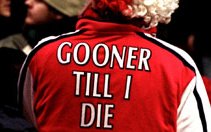A good few years back working with the Sales Director of a company based in the City of London I’d sat in on a sales review meeting that he’d chaired. He’d warned me beforehand that he was unlikely to get anything useful himself from it as most of those there would just see it as an opportunity to voice their grievances. The sales staff would have spent all month being told by their clients that their prices are too high, service not as good as their competitors and that their products were poor he mused. I already knew that they were the best performing company in their sector on a number of different criteria but other companies had bigger market share even if in some cases they were making a loss and wouldn’t be able to sustain that position indefinitely. That didn’t count much for the sales people who felt they weren’t maximising their commission because others were pursuing desperate policies of predatory pricing and uncosted service. Most were concerned about their next month’s pay packet not what it could be next year or how long it could be sustained. ‘We’ll spend 45 minutes having to listen to them whine and moan and 15 minutes getting them to focus on the strengths which has brought us the success we do have’ the SD told me.
He made a great performance of taking his watch off, pretending to wind it up and laid it out on the meeting table directly in front of him so that everyone knew he was keeping a close watch on the time. Make it count he was signalling. After listening for 45 minutes to all the failings they’d been told by clients that they were compromised by he asked them all individually to name 2 or 3 reasons why, given that things were so bad, people were buying from them at all – after all it wasn’t as though sales weren’t good – just that there was more to be had. At the end of 15 minutes he’d got from them at least a dozen good reasons which he put up on the white board behind him as to why the company’s offer was really quite strong and the sales guys left reassured by the realisation that as they reflected on their strengths they were a pretty good company with some genuinely strong positives after all. They’ll be back next month whining and moaning just as strongly the SD told me knowing that he would have to find a way of picking them up all over again.
When things are going well football supporters are fed all sorts of wonderful nonsense about their team, of their superiority, their managerial and tactical genius that their players are true world beaters full of winning mentality who will dominate the game for years. Success can be measured in relative terms and a team achieving 4th place for the first time in an age will be fed the same bullshit that another winning a trophy might expect. If the team is good enough to win a trophy, but not successful in doing so, as expectations fail to be met supporters are fed the same exaggerated guff by the media and opinion formers that the sales staff of the City firm were fed by their customers. Elements of truth are magnified to give the impression that things are irredeemably poor and that total breakdown and failure are inevitable. In consequence we get absurd levels of overreaction with blog posts pronouncing this as the worst season ever experienced and groups of disaffected fans setting up campaigns demanding that some uninformed action be taken to save us from hell and damnation.
Unlike the sales meeting though the internet allows 24/7 discourse to take place and it can’t be influenced with anything like the control the SD was able to bring. There is no wrist watch to limit the time spent moaning and allow for rational reflection so for much of the time supporters have only the sound of their own frustration and the scorn of their rivals to feed their thoughts. As positive as free speech is invariably the spiral of depression continues to be fed by its own volume.
But there’s a gaping hole in this analogy. The fatal flaw is in the suggestion that supporters are really as much a part of the team as the City firm’s sales force was. When Wenger was asked whether the crowd, some of whom had made vocal their dissatisfaction after the Blackburn game, would stick with the team subliminally rather than consciously he drew a distinction between ‘we’ (the club and team) and ‘anybody else’ (the crowd).
‘That is not our concern, we are responsible for our performances and for our attitude, not for the attitude of anybody else’ he responded.
It’s an indication of just how much supporters, and it’s true of support among all PL teams (lest some of the hypersensitive tendency here see this as a criticism of our support and not just a regret) are being viewed as an audience, more that of a customer and not an integral part of the club as Wenger perhaps unwittingly acknowledged.
When Sky began the process of commoditising football in 1992, encouraging those like Abramovich to distort the sport even further a decade later (what would competition authorities make of any business selling a product at least 40% below the cost of production as Chelsea have done?) they also brought about a gradual change in the relationship between clubs and the basis of its support. Now when a supporter claims that he is not being adequately rewarded for high ticket prices or demands that a minimum amount be spent on transfers he is acting in much the same way that any customer might demand quicker delivery times or an increase in promotional spend in return for his patronage. Those insisting that if nothing is done then support will dwindle away are accepting that supporters will inevitably act as any other customer unhappy with their product would.
In the two decades since Sky bought into the game a whole generation of supporters perhaps now heading towards or into their 30’s, and those since, have grown up knowing football more as a commodity. Most would baulk at the suggestion that they are becoming customers preferring to still see themselves as supporters of the faith, keepers of the flame, a genuine part of a club but the reality is slowly, inexorably and against their real instincts supporters are becoming that little bit more detached from the club they support. Hopes and aspirations are being replaced by entitlement and expectations as supporters themselves are becoming complicit in their own divorce while football tries to maintain the pretence for as long as possible that its supporters are anything other than customers. Much has changed about football in the last 20 years.


